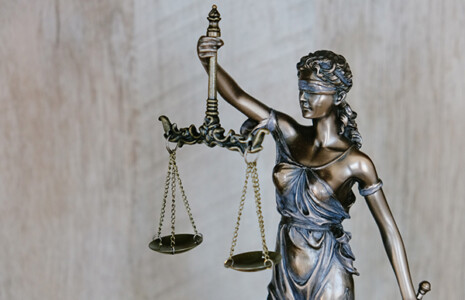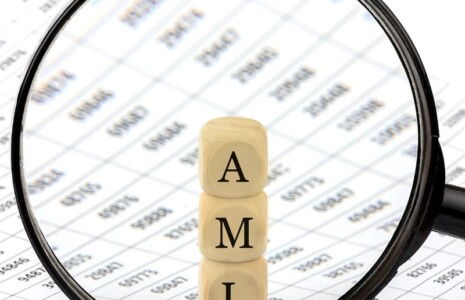How to Help Clients Claim VAT Before Receiving a VAT Number
When a business applies for VAT registration in the UK, there’s often an awkward waiting period (weeks, sometimes longer) between submitting the application and receiving the VAT number. In that time, clients still have to run their businesses, issue invoices, and manage purchases. Naturally, the question arises: can I charge VAT while waiting for registration? Your clients might also be asking if they can reclaim VAT on expenses during this period.
UK VAT Registration Rules
Every business must register for VAT once their taxable turnover goes over the registration threshold, currently £90,000 in a rolling 12-month period, or when they expect to exceed this threshold within the next 30 days. Registration is also available voluntarily for businesses below this threshold, including those registering as intending traders. Once the VAT registration application is submitted, there’s a gap before HMRC issues the VAT number. Once HMRC accepts the registration, the business becomes VAT-registered from the agreed effective date, regardless of when the VAT number is issued.
Registering for VAT as an intending trader
For intending traders (i.e. businesses registering before trading actually starts), HMRC will need evidence of genuine business intention. This could include your client’s business plans, supplier contracts, purchase orders, or premises agreements. HMRC expects evidence showing that their business really plans to make taxable supplies. Intending traders have some advantages – they can register before trading begins and immediately start recovering VAT on business setup costs, providing valuable cash flow support during the startup phase.
Can Clients Charge VAT While Waiting for Registration?
The short answer is no, you can’t officially charge VAT without a VAT number. And during this time between VAT registration and VAT number allocation, clients can’t legally charge VAT. HMRC treats it as unlawful to show VAT on an invoice before registration is confirmed. However, clients can still issue invoices in the meantime – as long as they do it correctly.
Issuing invoices during the waiting period
If your client’s business has applied for VAT registration but they haven’t yet received the VAT number, they must issue invoices without VAT during that period. Once the VAT number arrives, those invoices can then be reissued or adjusted to include VAT. Alternatively, HMRC allows for “pending VAT registration” invoices (from the effective registration date). The invoice should make it clear that the business has applied for VAT and intends to charge VAT once the number is confirmed.
As an accountant, encourage your clients to keep a clear record of these invoices, noting dates, amounts, and descriptions. Once the VAT number is received, clients can either issue corrected invoices or credit notes to enable customer VAT recovery, or simply amend the original invoices – depending on their bookkeeping system and customer agreement.
Reclaiming VAT on Purchases Made Before Registration
While clients can’t charge VAT until registration is confirmed, they can reclaim VAT on certain purchases made before the registration date…
Which expenses can be claimed
HMRC allows businesses to reclaim VAT on goods and services purchased before registration, subject to strict conditions:
Goods bought up to four years before registration that are still in use (for example, stock, equipment, or tools) or that were used to make other goods that the business still has.
For services, the timeframe is limited to six months prior to registration (and might include things like rent, professional fees, or software subscriptions).
VAT on items that have already been sold or consumed before registration generally can’t be reclaimed. The same applies to purchases that don’t directly relate to taxable business activity. Capital expenditure, stock purchases and professional fees typically qualify, provided they meet HMRC’s requirements.
Record-keeping requirements
Documentation is critical for pre-registration VAT recovery. To reclaim VAT, the business must have valid VAT invoices in its own name. Advise your clients to keep copies of all relevant invoices, receipts, bank statements, and digital records. Your client will need to show the business purpose of each expense, as well as evidence that they still own the goods that were purchased. For capital items, they’ll need to maintain asset registers showing purchase dates, costs, and current locations.
Advice for Accountants Supporting Clients
Delays and uncertainty around VAT registration can be frustrating. Make sure clients understand that they can’t legally charge VAT until their registration is confirmed. Encourage them to keep detailed records of invoices issued and purchases made during this period, as it makes later adjustments much easier.
Establish clear protocols for invoice amendments once VAT numbers are received. Clients need to understand that initial invoices may require correction to enable customer VAT recovery.
Avoiding common VAT mistakes
As an accountant, you might have clients asking, “Can you charge VAT if you’re not VAT registered?” or “Can I charge VAT without a VAT number?” Clients must have registered for VAT, and they can’t issue valid VAT invoices until they receive their VAT number. Thorough records are critical if they want to recover VAT on their startup costs.
An example:
Your sole trader client applies for VAT registration in mid-June but doesn’t receive their VAT number until late August. They continue trading in July and issue “VAT pending” invoices. Then, when they get their VAT number, they reissue those invoices (including VAT) and inform customers that VAT will be due. Your client can then include those sales in their first VAT return. The main requirement is they have to demonstrate that all the expenses relate to business activities.
Supporting Clients With VAT Registration
VAT can be tricky to manage. If you want to help clients reclaim what they’re entitled to, the right guidance can help. ICPA’s VAT Advice Line gives you direct access to expert support on complex VAT queries, including registration, input tax recovery and cross-border transactions. Whether you’re unsure how to handle a client’s pre-registration invoices or how to reclaim their VAT as an intending trader, our specialists can help you find clarity.
ICPA members benefit from the specialist VAT guidance and technical support ICPA offers, no matter how unusual the scenario or how challenging the question. ICPA membership is designed to support independent practitioners and small firms. If you’re helping clients through VAT registration challenges, contact the ICPA today and get the expert backup you need to handle complex VAT issues with confidence.
Get the latest news direct to your inbox
Sign up to our mailing list to receive weekly bulletins on all of the latest accounting news.
"*" indicates required fields



